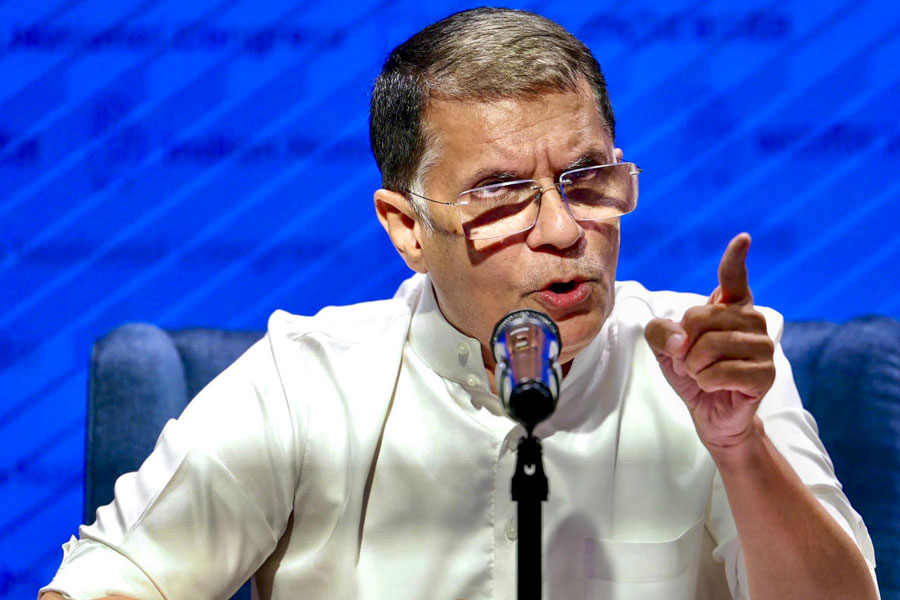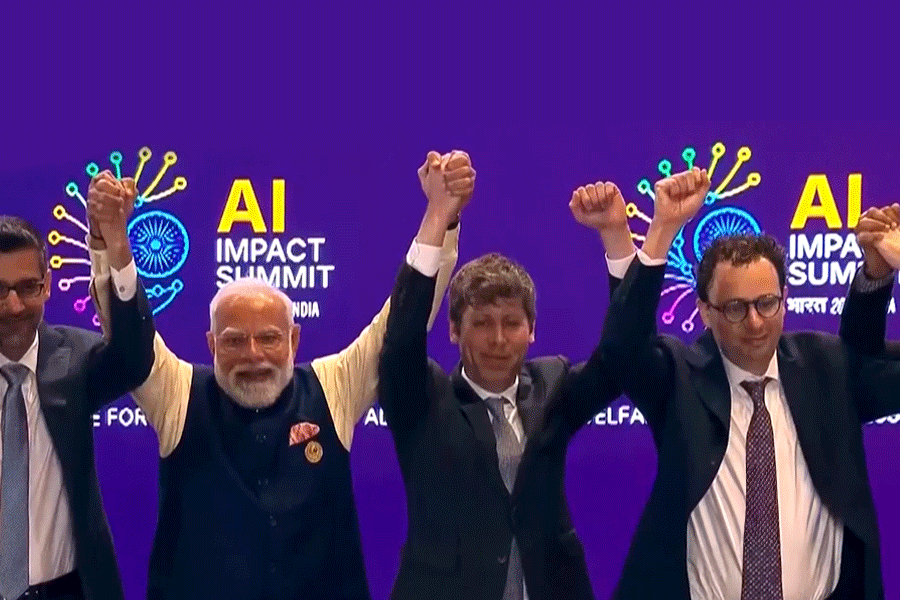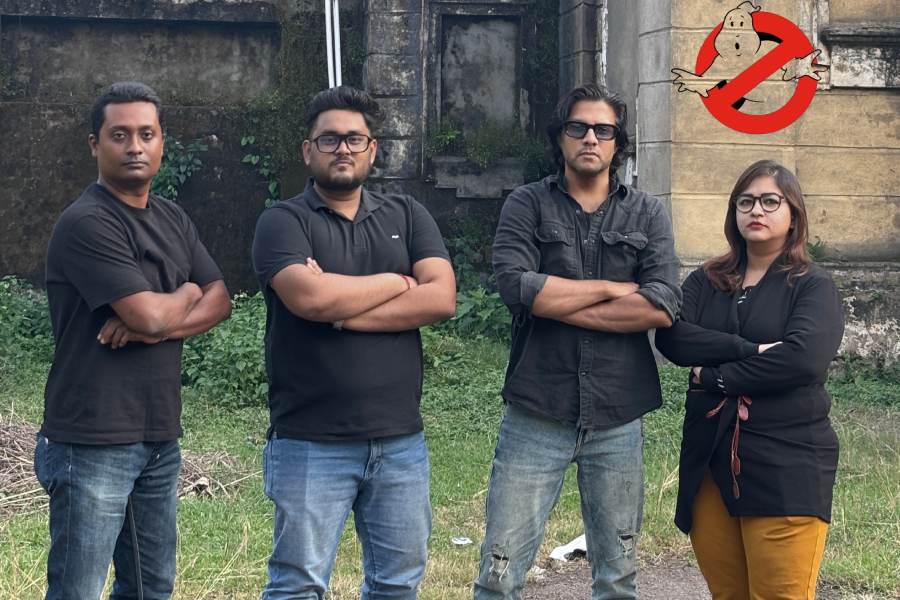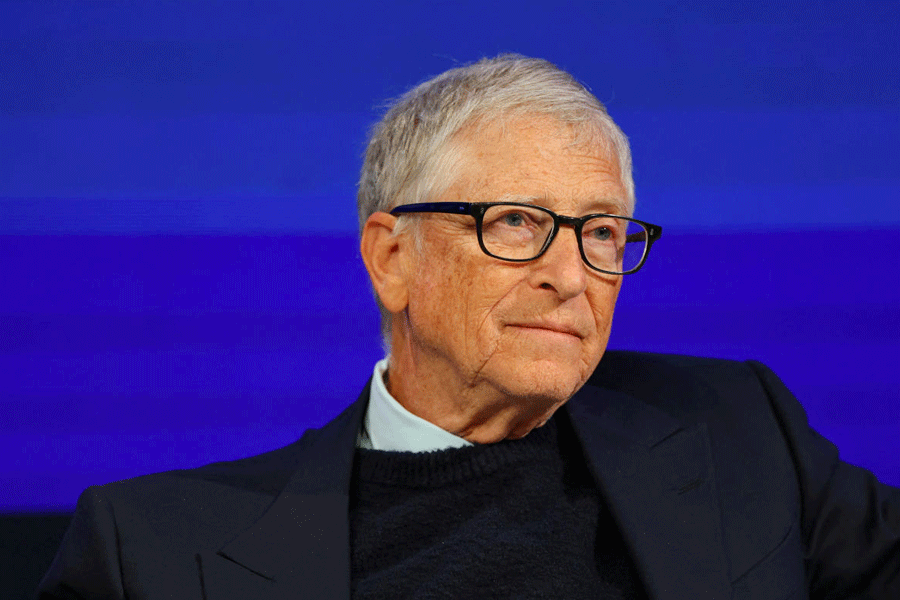Calcutta, Nov. 2 :
Calcutta, Nov. 2:
Commuters in Calcutta struggled through the first day of a bus strike, only to be informed that there would be no respite on Friday.
Life on the streets, and under ground, was thrown out of gear on Thursday as nearly 4,500 private buses and minibus-owners launched a three-day agitation demanding increased fares in the wake of the recent hike in petroleum and diesel prices.
Chief minister Jyoti Basu said he would try to contact Prime Minister A.B. Vajpayee on Friday and request him to take an immediate stand on the rollback of prices. 'We have a bus strike on our hands. We will have to take a decision fast regarding the demand for increased fares,' he said.
Transport minister Subhas Chakraborty failed to persuade the operators to withdraw the strike 'in the interest of the people' at a meeting with representatives on Thursday evening.
'They have been asked to draw up a revised fare structure on Friday. This will be examined by our experts on November and we hope to implement the new fares from November 7,' Chakraborty said.
Ajit Saha and Sadhan Das, president and general secretary of Bengal Bus Syndicate and Joint Council of Bus Syndicate respectively, however, said they would wait and watch. 'We will first see the fare structure recommended by the government on November 7. If it does not suit us, we will go in for an indefinite strike from November 11,' they warned.
The Bengal Bus Syndicate has demanded that the minimum bus fare be Rs 3 for the first six kilometres. The Joint Council has demanded Rs 3.50 as the minimum fare for the same distance. Minibus-operators have demanded a minimum of Rs 4 for the first two kilometres.
As the bus operators and administrators tried to arrive at a solution behind closed doors, out on the streets, office-goers and students struggled to get to their destination - fighting for a foothold in overcrowded government buses, chasing much-in-demand taxis and haggling with auto-rickshaw drivers. Stranded passengers were even seen clambering on to lorries and trucks on Jessore Road to try and get a move on.
In city schools, only students availing of chartered buses, hired or personal cars managed to make it to class.
Auto-rickshaws had a field day, with drivers demanding double or more than the usual fare. A ride from Lake Town to Belgachhia Metro station on Wednesday cost Rs 5 to Rs 6, instead of Rs 2.50. Even rates of 'shuttle' taxis shot up.
The Metro Rail provided the one lifeline. But hundreds thronged ticket counters at various Metro stations since morning and every train was packed to capacity. About 3-lakh commuters used the Metro, at least 75,000 more than on other days.
J.K. Mitra, chief operations manager of Metro Railway, said that ticket sales on Thursday recorded a Rs 3.5-lakh rise above normal. 'On weekdays, we generally sell Rs 10-lakh worth of tickets. On Thursday, we sold over Rs 13.5 lakh,' he said, adding that additional counters had to be opened at various stations to cope with the rush.
There was good news for shoppers at New Market, with the Progressive Taximen's Union opening a 72-hour special taxi camp near Lindsay Street to bail out passengers hit by the bus strike.
PTU president Madan Mitra said over 12,000 thousand trips were made from the special camp on Thursday. 'We are allowing passengers to share the taxis, without any extra charge.' Mitra reiterated the union's decision not to go in for a fare hike as it would 'inconvenience the common man'. He described the transport strike as a 'deliberate game being played by the state government and bus and minibus-owners'.
 Thursday, 19 February 2026
Thursday, 19 February 2026









